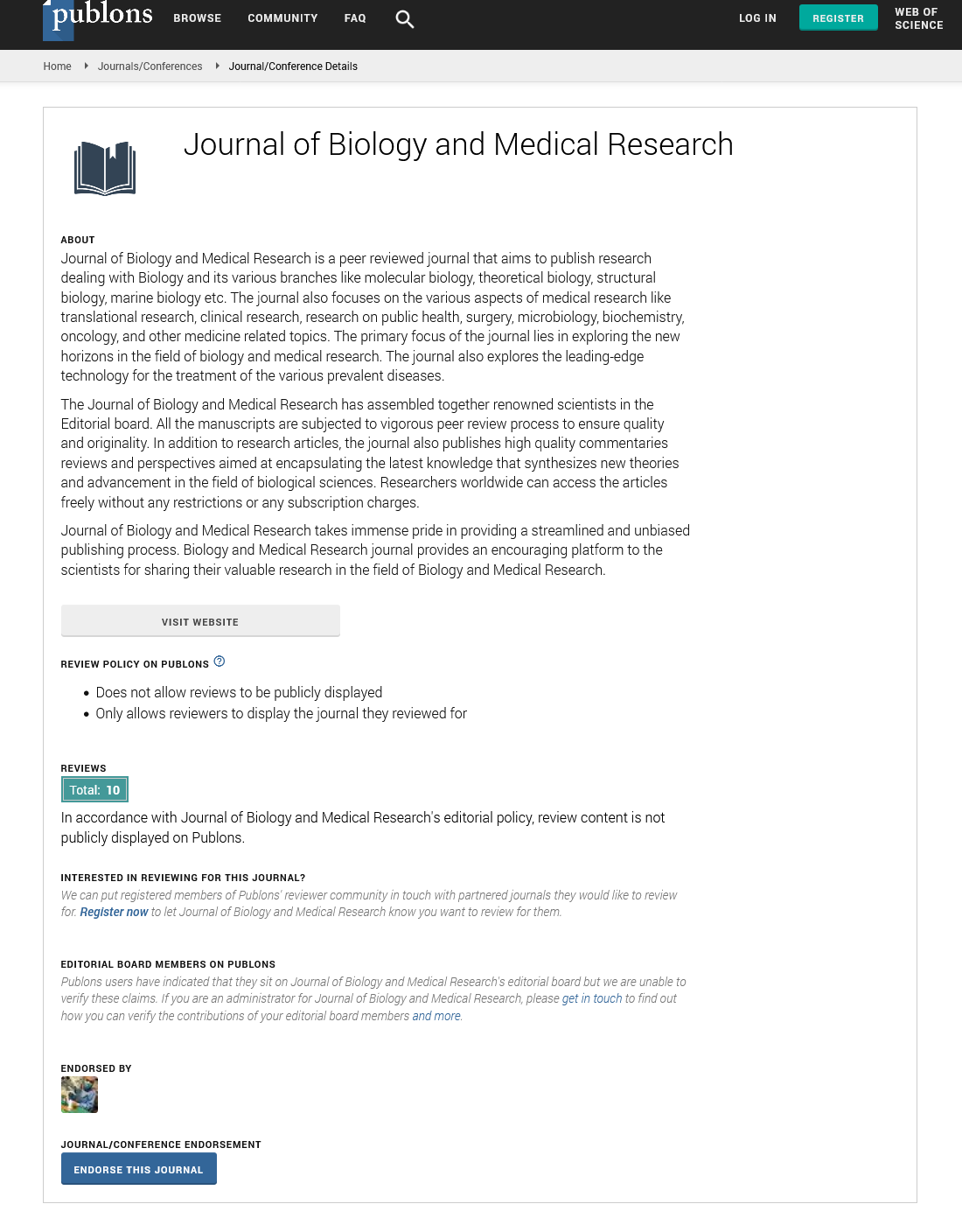Abstract
Significant association of BRCA1, BRCA2 and TP53 gene polymorphisms with breast cancer risk in Khyber Pakhtunkhwa, Pakistan
Background: Molecular characterization of breast cancer heterogeneity facilitates the understanding of disease etiology and progression. More specifically, mutations in known and tumor suppressor genes such as BRCA1, BRCA2 and TP53, result in the alteration of a genomic landscape within sporadic and familial breast cancers. Single nucleotide polymorphisms (SNPs) are described as a mutation with a particular prevalence in certain ethinic population that in turn result in the altered prevalence of disease, the tumor suppressor genes responsible for maintaining the genomic stability. Certain SNPs in BRCA1, BRCA2 and TP53 are known to correlate with elevated risk of breast cancer development worldwide, however there is no such study categorizing the risk of breast cancer development in the Khyber Pakhtunkhwa population in Pakistan. Objectives: We investigated known associative SNPs on the following risk alleles, BRCA1 (rs1799950), BRCA2 (rs144848) and TP53 (rs1042522) to determine the prevalence of these genetic elements within the Pakhtunkhwa population, and to further stratify the risk of breast cancer risk development conferred by such polymorphisms in the same population. Methods: To determine the prevalence of known breast cancer associated SNPs, a total of 220 DNA samples were collected via venipuncture procedure. Out of 220, 140 of the samples were obtained from breast cancer patients and 80 were considered age and gender matched healthy controls. Genomic DNA was extracted from the peripheral blood cells and genotyping was performed utilizing a T-ARMS PCR technique. The frequencies of the polymorphisms were checked using SPSS version 16. Results: Our results indicated that risk alleles of all three selected SNPs showed statistically significant association with breast cancer presence, p<0.05 (BRCA1, C- p=0.001); (BRCA2, C- p=0.000) and (TP53, C- p=0.000). Similarly, all the genotypes carrying risk allele were also significantly associated with the breast cancer risk with p<0.05 (BRCA1, TC- p=0.037, CC- p=0.005); (BRCA2, AC- p=0.000, CC- p=0.000) and (TP53, GC- p=0.000, CC- p=0.000). Conclusion: The risk allele and risk allele containing genotypes showed statistically significant association with breast cancer risk in our region. More investigation will be required to disseminate the results with large data sets and using whole genome sequencing. Key words: Breast cancer risk, BRCA1, BRCA2, TP53, Polymorphisms
Author(s): Najeeb Ullah Khan
Abstract | Full-Text | PDF
Share This Article
Google Scholar citation report
Citations : 80
Journal of Biology and Medical Research received 80 citations as per Google Scholar report
Journal of Biology and Medical Research peer review process verified at publons
Abstracted/Indexed in
- Google Scholar
- Publons
Open Access Journals
- Aquaculture & Veterinary Science
- Chemistry & Chemical Sciences
- Clinical Sciences
- Engineering
- General Science
- Genetics & Molecular Biology
- Health Care & Nursing
- Immunology & Microbiology
- Materials Science
- Mathematics & Physics
- Medical Sciences
- Neurology & Psychiatry
- Oncology & Cancer Science
- Pharmaceutical Sciences
